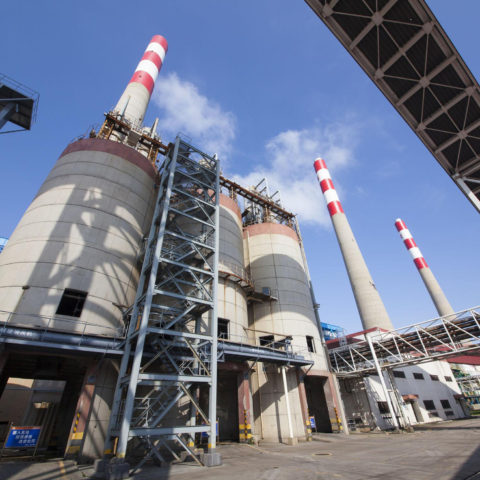Asphalt plants are a vital part of the road construction industry. They are responsible for producing the asphalt mix that is used to pave roads, highways, and other transportation infrastructure. However, during the production process, a large amount of dust is released into the air, which can be harmful to workers and the environment. That’s where filter bags come in.

Filter bags are a crucial component of the dust collection system in an asphalt plant. They are used to capture and collect the dust particles generated during the production process, preventing them from being released into the air. The filter bags used in asphalt plants are made of various materials, including woven and felted fabrics, and are designed to withstand the harsh conditions of the industry.
One of the key factors in the effectiveness of filter bags is their ability to withstand high temperatures. In an asphalt plant, the production process involves heating materials to high temperatures, which can reach up to 400 degrees Celsius. Therefore, filter bags must be made of materials that can withstand these extreme temperatures without breaking down or deteriorating.
Our asphalt plant operations have become more sustainable and compliant with environmental regulations since implementing the use of filter bags. The air quality has improved, and we have received positive feedback from our nearby community.
“Testimonial from Andrio Domeco”Another important consideration in the selection of filter bags is the type of dust being generated. Asphalt plants produce a variety of different types of dust, including fine particulate matter, silica dust, and hydrocarbons. Each of these dust types requires a specific type of filter bag to effectively capture and contain it.
Filter bags used in asphalt plants are made of various materials, each with unique characteristics that suit specific applications. The most common types of filter bags used in asphalt plants include:
Another type of filter bag used in asphalt plants is the felted fabric bag. These bags are made of non-woven fibers that are felted together, creating a porous surface that captures the dust particles. Felted fabric bags are typically made of materials such as aramid, acrylic, or fiberglass and can withstand temperatures of up to 260 degrees Celsius.
Fiberglass Filter Bags – Made of woven fiberglass fabric, these bags are known for their high-temperature resistance, durability, and resistance to acids and alkalis.
Nomex Filter Bags – Made of synthetic aramid fibers, these bags are known for their superior heat resistance, excellent dimensional stability, and resistance to abrasion.
PPS Filter Bags – Made of polyphenylene sulfide fibers, these bags are known for their excellent chemical resistance, low moisture absorption, and resistance to high temperatures.
P84 Filter Bags – Made of polyimide fibers, these bags are known for their superior thermal stability, excellent filtration efficiency, and resistance to abrasion.
Filter bags play a critical role in promoting sustainable operations in asphalt plants. By capturing particulate matter and preventing it from escaping into the atmosphere, filter bags improve air quality and protect the health of workers and nearby communities. Moreover, the collected particulates can be recycled and reused, reducing waste and minimizing the environmental impact of asphalt production.
To optimize the sustainability of their operations, asphalt plant operators can take several steps, such as selecting filter bags made of eco-friendly materials, adopting energy-efficient baghouse systems, and implementing regular maintenance and cleaning schedules for their filter bags. Additionally, some asphalt plants are exploring the use of innovative technologies such as electrostatic precipitators and wet scrubbers that can further enhance the efficiency of their dust collection systems and reduce emissions.
| Type of Filter Bag | Material | Temperature Resistance | Filtration Efficiency | Durability | Chemical Resistance |
|---|---|---|---|---|---|
| Fiberglass | Woven fiberglass fabric | Up to 260°C (500°F) | Moderate | High | Resistant to acids and alkalis |
| Nomex | Synthetic aramid fibers | Up to 204°C (400°F) | High | Excellent | Resistant to abrasion |
| PPS | Polyphenylene sulfide fibers | Up to 190°C (375°F) | High | Moderate | Excellent |
| P84 | Polyimide fibers | Up to 260°C (500°F) | Very high | Excellent | Resistant to abrasion |